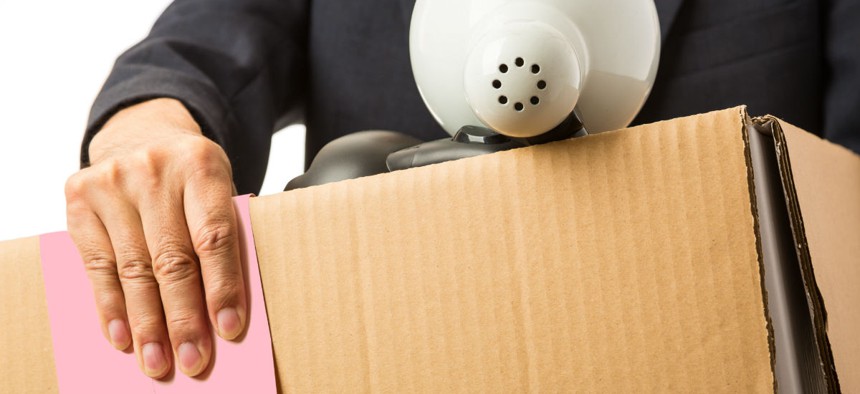
Gang Liu / Shutterstock.com
The Upsides of Getting Fired Over and Over Again
I no longer assume some benevolent caretaker will provide for my livelihood. And I've realized there are worse things than being fired.
The first time I was laid off, I was 21 years old. A year out of college, I’d been working as a health educator at a student health center. To be perfectly honest, I hated my job. I was poorly paid and overwhelmed with responsibility. Worst of all, I despised my boss. It was the kind of work environment where getting up in the morning is physically painful, and most of your free time is spent quietly crying in the bathroom.
And yet as miserable as the job made me, being called into my boss’s office to be told my contract would not be renewed felt even worse. Having an awful job was bad enough, but failing at it? As an Ivy League graduate who’d always breezed through school, failure was an unfamiliar sensation. And an unwelcome one. Unprepared for a moment like, all I knew for sure was that it felt awful.
After I got the news, I wandered the school’s beautiful campus, bawling my way through my cell’s contact list. I’m sure I phoned quite a number of people that afternoon, but the only conversation I remember was the one I had with my father.
“Why are you crying?” he asked me. “You hated that job.”
I didn’t have an answer.
That teary day in the Bronx was the first time I’d ever been terminated from a gig—but it certainly wasn’t the last. After a summer on unemployment, I would up working part-time as a web developer at a consulting firm. Although I wasn’t technically let go from this job, I would have been if I hadn’t jumped ship just in time. (Seriously—the day I gave notice, I learned that my bosses had already been planning to let me go, largely due to the fact that my job was essentially unnecessary.) My next job, in health education, ended three years later, when the program’s founder—a man ironically famous for his compassion—informed me of my termination via snail mail. He also neglected to offer any follow-up conversation until I angrily called the office three days later.
By the time I was 29, being unexpectedly booted from my place of employment had become de rigeur. The day that Gawker Media magnate Nick Denton called me into the conference room to inform me that, in two months’ time, the site I ran for him would either be sold off or shuttered, I did not cry. I barely even reacted.
Later, as we prepared for another meeting, Denton asked me if I’d already known what was coming. “You didn’t seem at all surprised,” he said.
I shrugged, still unmoved. “There was nothing I could do,” I said.
I would not describe being laid off as a good thing. It’s never fun to have to scramble for work, or frantically figure out where your next rent payment will come from. But I truly believe my insecure work history has ultimately been a great thing for me. In my case, the years spent bouncing from job to job forced me to develop a sense of resilience, and—if you like—a whole lot of character.
Getting let go so many times so early in my career means that I no longer assume some benevolent caretaker will provide for my livelihood. It’s forced me to develop the skills and scrappy attitude to make sure I’m always able to take care of myself. When a cushy gig at How About We abruptly ended after the company was acquired by IAC, I barely broke a sweat. I’d been preparing for the end of my tenure from the day it had begun. After everything I’d already been through, I knew I would be fine.
(Somewhat appropriately, my termination from online dating site How About We came mere weeks after I’d shocked a disbelieving friend by insisting that anyone could get let go from a gig at any time for any reason. Though I was sorry to lose the regular paycheck, there was a perverse pleasure in being able to wield my sudden dismissal as proof that I had, in fact, been right.)
In my youth, I’d always thought that failing was the worst thing that could possibly happen to me. I imagined that disappointing someone, or being dismissed, would do irreparable damage to my reputation and credibility. But as an adult, I know that’s just not true. Though my friends who’ve made it to adulthood with nary a black mark on their employment records may still see an unexpected layoff as one of the worst things that can happen, to me, it’s just a sign that it’s time to move on to another opportunity.
And fortunately, the world tends to be full of a whole bunch of opportunities far better than working for a company that’s decided it doesn’t want you.
(Image via Gang Liu / Shutterstock.com)
NEXT STORY: Why FOIA Obligations Don't Apply to Congress






